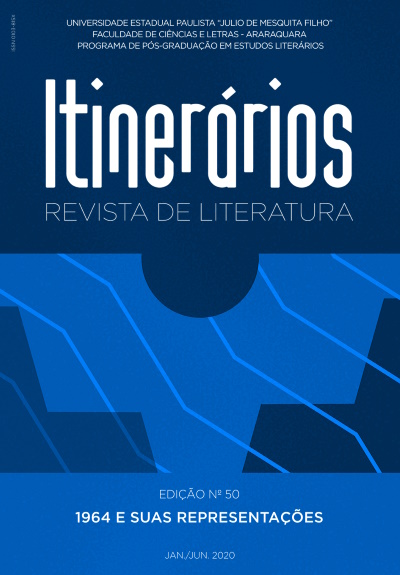From the crisis of representation to the reconsideration of mímesis: refractions of brazilian dictatorship in Zero and A festa
DOI:
https://doi.org/10.58943/irl.vi50.13382Keywords:
Post-dictatorship Novel, Zero, A festa, Crisis of Representation, Mímesis,Abstract
When Zero (1975, Ignácio de Loyola Brandão) and A festa (1976, Ivan Ângelo) were published, they had a great repercussion, figuring among the lists of bestselling novels of that time because of their thematic and form. The way they became known as “dictatorship novels” consolidated a direct relationship between their text and the context from which they emerged. The interrelation connecting literature, reality, truth, subject, mimesis, and fiction has always been highly estimated. This interrelation has developed itself, over time, inside a Western thought paradigm – which was cemented, not without variations – essentially metaphysical or substantialist and which went into crisis at the turn of the 20th century. Here our hypothesis is that Zero and A festa, before being considered “1964 Brazilian dictatorship novels”, are legatees of such crisis from the end of the 19th century. It means that both novels have an indirect relation with the reality they evoke. We propose this hypothesis through the contextualization of concepts as “The Crisis of Representation” (PELLEGRINI, 2007; 2009) and the “Reconsideration of Mimesis” (LIMA, 2014). Zero and A festa are, therefore, novels that emerged from the Brazilian dictatorship conjuncture and which have had their form intensified by it, having a previous origin.Downloads
Published
21/10/2020
Issue
Section
1964 and its representations
License
Os manuscritos aceitos e publicados são de propriedade da revista Itinerários. É vedada a submissão integral ou parcial do manuscrito a qualquer outro periódico. A responsabilidade do conteúdo dos artigos é exclusiva dos autores. É vedada a tradução para outro idioma sem a autorização escrita do Editor ouvida a Comissão Editorial.

